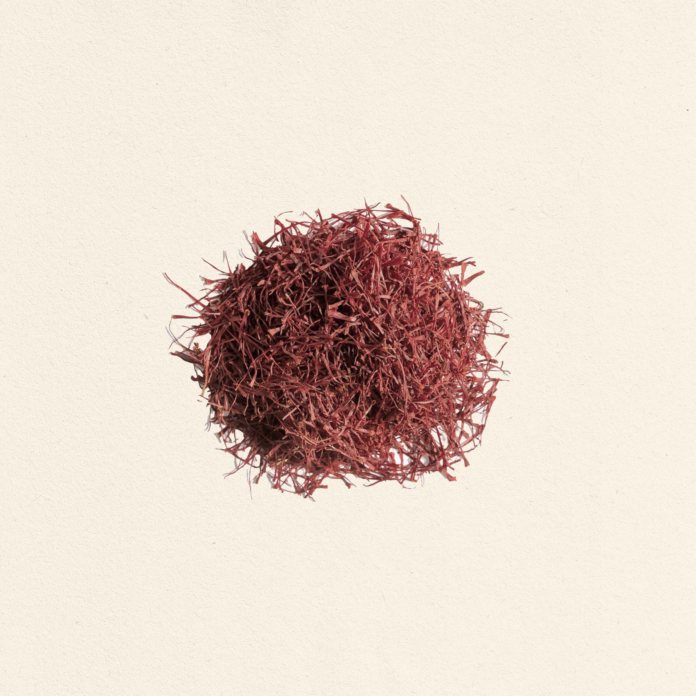At Salma’s wedding you squeezed the syrup out of the sweet yellow rice, picked swollen sultanas from among the strands of saffron and shredded coconut, piled them on the side of your paper plate and told that heap of fat sultanas that if I ever married a man you would never speak to me again.
That was the morning after the mehndi where you balanced the silver platter of henna cones on an open palm, milling in the doorway of the room packed with girls, looking like a page boy. A small curl was plastered to your forehead with your brother’s hair gel. I sat cross-legged on the floor, my hands in your sister’s lap as she painted curlicues on my palms and doused my skin in eucalyptus oil and simple syrup. Your sister painted me until my hands smelled of damp wood and I couldn’t help but practise the many mudras I’d learned in yoga teacher training:
Abhaya mudra, for reassurance and safety: The right hand is held upright, and the palm is facing outwards.
Varada mudra, for the fulfilment of wishes: The right hand is held out, palm uppermost and fingers pointing downwards.
Your sister giggled and said, Stop with all that Hindu stuff!
That night, you scraped the dried paste off my hands in the upstairs sink, told me to move my hands over my breasts, and said I looked like a painting of Radha come to life.
Munira’s valima was also segregated by sex but you sat close to me. The golden hem of your stiff sherwani caught in the embroidery of my anarkali suit so that when you stood up to face your cousin, the one who breached the partition to ask if you were in the correct section, a cascade of diamante and pearls ripped off my dress and bounced around my feet like the spray from a waterfall.
My dress was turquoise with tough, silver thread woven in paisley shapes. Small mirrors the size of pennies dotted my waist. When I looked down, I saw my right eye in one of those mirrors as you called your cousin haraamzada and said that you had seen him at the cinema with three different white girls in three weeks and did the mosque committee know about his cinematic interests.
Hands nestled in my lap, I extended my index finger at the opponent in tarjani mudra, to indicate a threat, to signal a warning. Then I curled my middle fingers into my palm, raising my index and pinky finger, like a rock star: karana mudra, to banish demons.
The next summer we took the train to Brighton for a wedding on my mum’s side of the family and I didn’t speak the whole way because you refused to wear salwaar kameez or a dupatta. The train conductor held our tickets a moment too long and you asked if there was a problem with our passes. He shook his head, looked at my face and then yours and walked to the next carriage. I turned to look out the window as I put my hand in your lap. Don’t get up, I thought. We must brace ourselves for so many fights. Please, not this one.
The way my mother clutched her taweez and said I am praying for you both meant that she knew. When you went to kiss the feet of my family’s matriarchs, mum pulled me to the side and asked if I was wearing anything sleeveless and if you were wearing anything feminine. No and no. Only one of those was the correct answer.
The next spring, a week before your birthday, we watched grandmas crack their knuckles on your cousin Solyma’s temples and stuff pink mithai into her half-open mouth. Let me sweeten your palate like this man will sweeten your life, they chuckled. Fat crumbs of mithai stuck to Solyma’s Mac lip-gloss, a shade called MisObedient.
In May we went to our first destination wedding, a valima on the beach in Cyprus, where the sweat evaporating off our bodies perfumed the air inside the gazebo with the scent of roasted cumin. Three hundred hot Indians, sari blouses stuck to our backs, Georgette sleeves wedged into damp armpits, milled around tables covered in white paper. Silver pouches of mukhwas littered the tables next to bottles of Mecca-Cola that your uncle had ferried from Turkey.
Beta, wouldn’t you be cooler in nice cotton dress instead of this thick thick sherwani? your aunt said, handing you her polystyrene cup of steaming tea so she could adjust the collar of your cream and gold tunic. I wanted to say that women can wear sherwani too but I could already see you rolling your eyes. When she had fixed the collar that was already straight, she turned to me and asked when I was getting married.
You marched me out of that gazebo, down towards the rocky part of the beach, lifted me onto a wet rock, put your head beneath my sari and moved your mouth until I moved like the waves. Our extracellular fluid is seventy percent ocean, you said that night, licking salt water from my cheeks. We held hands and stared at the brackish circle on my pillow the next morning.
You knew it was coming.
I didn’t see you for almost two years until another wedding brought us together. You pointed with one finger, not the four-fingered suggestion of shoonya mudra, at the cream and gold sherwani I had picked out for him and laughed. You had upgraded to a Nehru jacket and shorter hair. Will he lift you onto wet rocks, pick the sultanas out of your food and kiss your tears? I thought I heard you ask. But you were making small talk, placing a square of pink sweet onto my tongue, and wishing me a sweet life.


